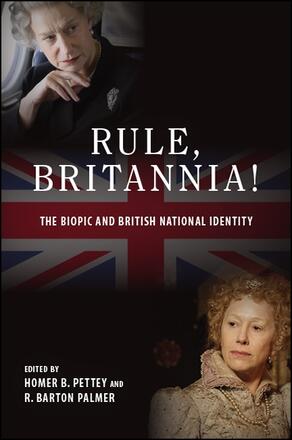
Rule, Britannia!
The Biopic and British National Identity
Alternative formats available from:
Assesses how cinematic biographies of key figures reflect and shape what it means to be British.
Description
Winner of the 2019 SAMLA Studies Book Award for Edited Collections presented by the South Atlantic Modern Language Association
Rule, Britannia! surveys the British biopic, a genre crucial to understanding how national cinema engages with the collective experience and values of its intended audience. Offering a provocative take on an aspect of filmmaking with profound cultural significance, the volume focuses on how screen biographies of prominent figures in British history and culture can be understood as involved, if unofficially, in the shaping and promotion of an ever-protean national identity. The contributors engage with the vexed concept of British nationality, especially as this sense of collective belonging is problematized by the ethnically oriented alternatives of English, Scottish, Welsh, and Irish nations. They explore the critical and historiographical issues raised by the biopic, demonstrating that celebration of conventional virtue is not the genre's only natural subject. Filmic depictions of such personalities as Elizabeth I, Victoria, George VI, Elizabeth II, Margaret Thatcher, Iris Murdoch, and Jack the Ripper are covered.
Homer B. Pettey is Professor of Film and Comparative Literature at the University of Arizona. His books include Film Noir and International Noir, both coedited with Palmer. R. Barton Palmer is Calhoun Lemon Professor of Literature and Director of the World Cinema program at Clemson University. His books include Invented Lives, Imagined Communities: The Biopic and American National Identity (coedited with William H. Epstein); Hitchcock at the Source: The Auteur as Adaptor (coedited with David Boyd); and Hitchcock's Moral Gaze (coedited with Pettey and Steven M. Sanders), all published by SUNY Press.
Reviews
"…Rule, Britannia! offer[s] thought-challenging case studies that discuss a wide range of theoretical questions, opening up a large spectrum of valuable leads for research on both the biopic genre in general and its specificity in British film. " — Cercles
"This exceptional collection offers new ways of looking at these films as films, as well as a fresh approach to British history as a cultural whole. " — Wheeler Winston Dixon